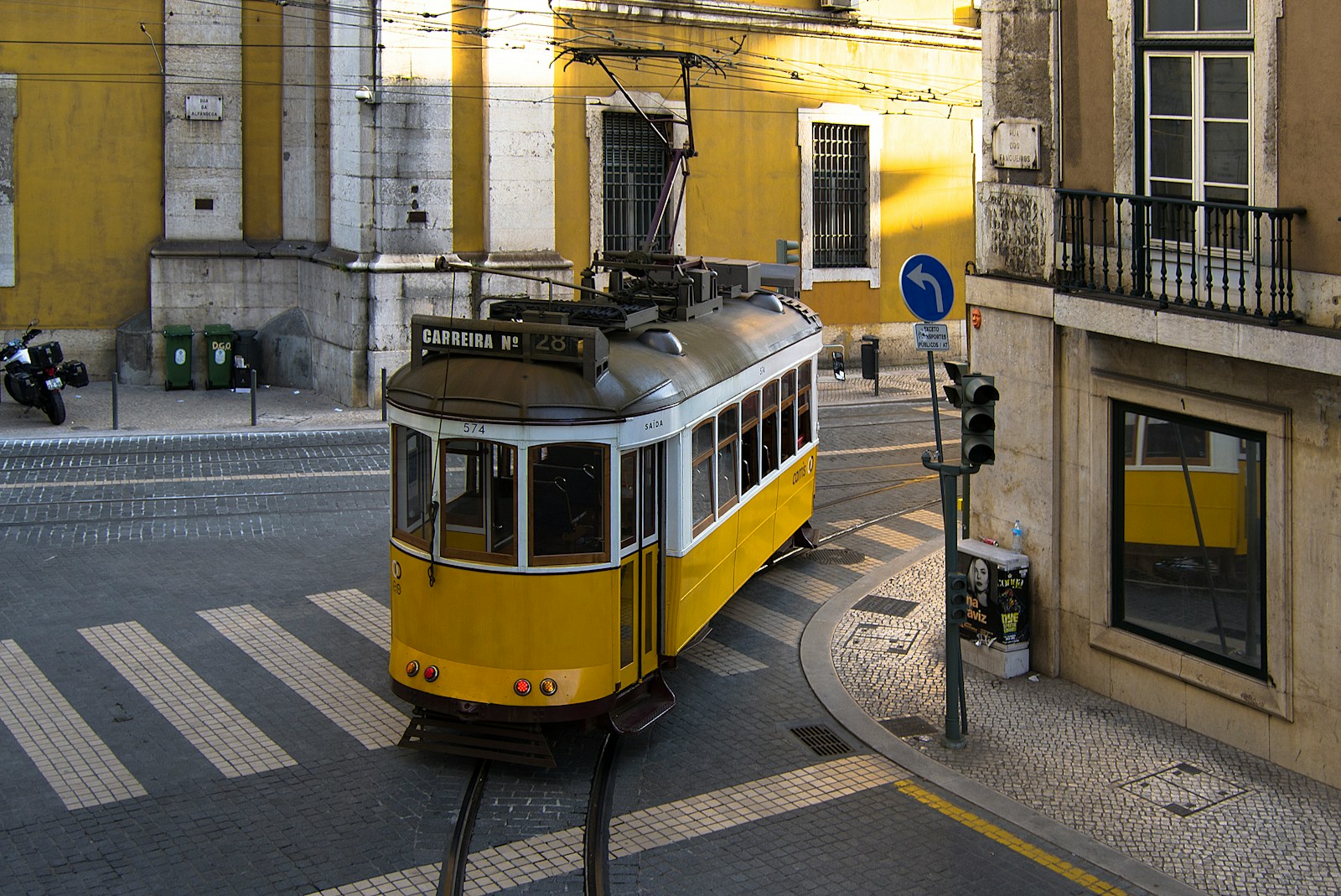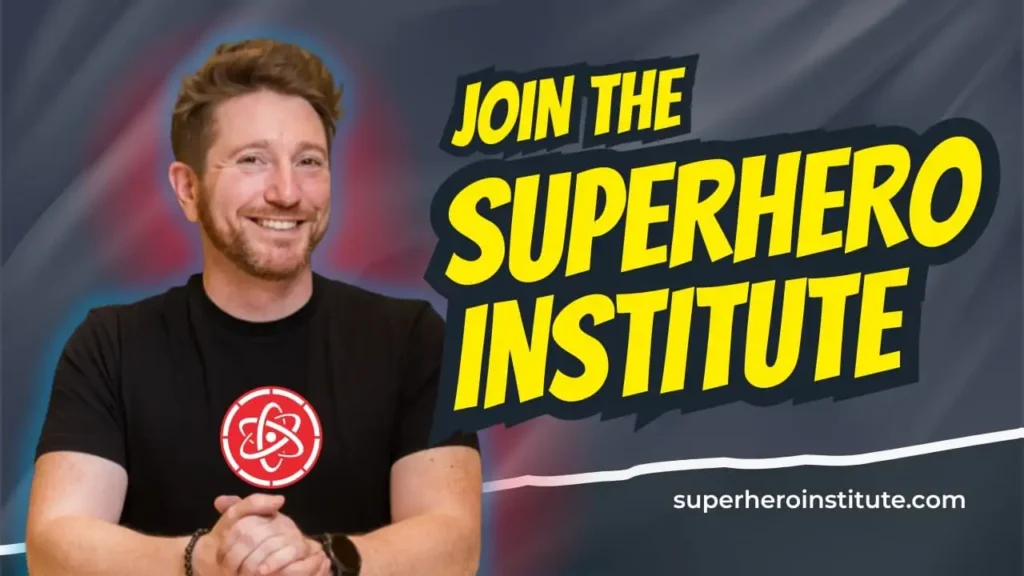Trolley Problems
You’ve probably heard of the trolley problem thought experiment.
If not, try these fun experiments to get the gist.
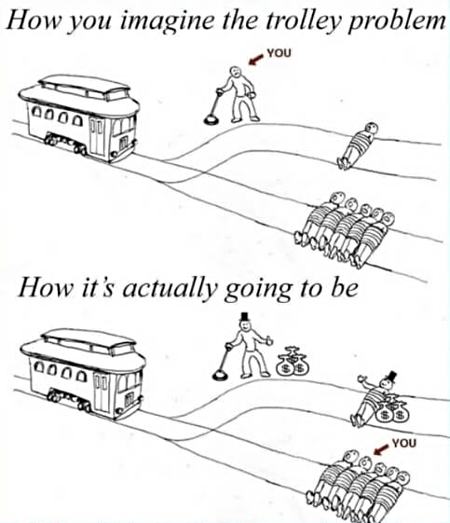
It occurred to me that we’re increasingly facing real-world trolley problems. These are unwinnable choices where harm is inevitable.
But here’s the twist: in many modern dilemmas, we’re both the switch operator and one of the people strapped to each of the tracks.
Let me give you a few examples, and then let’s talk about how to escape the problem entirely.
✉️ Get the Infinite Impact
Join thousands getting weekly wisdom on unlocking hidden potential, building meta-abilities, and creating meaningful change through practical frameworks you can use immediately.
The Social Network Trolley
Should you quit a social network?
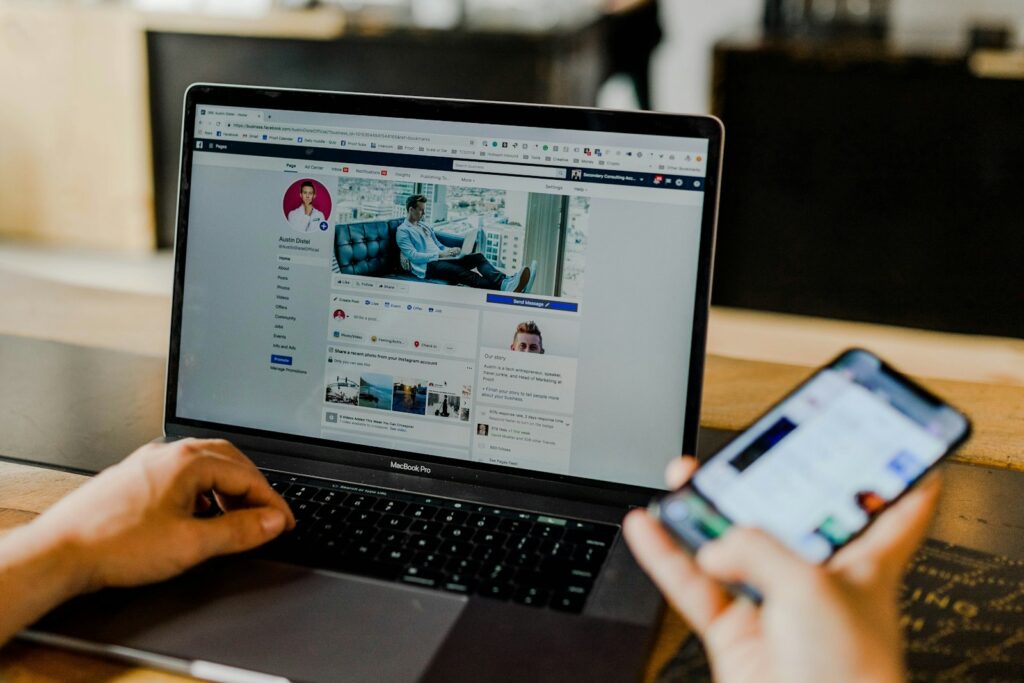
A trolley speeds down the tracks…
You decide to stay. You keep all the benefits including your connections, visibility, and the ability to reach a massive audience. You continue to promote your business, share messages of love, hope, and tolerance, and engage in important conversations.
But tied to the tracks are the consequences of supporting platforms that profit from harm.
Twitter, Facebook, Instagram, Threads, and WhatsApp have played a direct role in spreading misinformation and fueling radicalization. They have amplified right-wing conspiracy theories, shut down fact-checking, and tailored their algorithms to suppress left-leaning voices. Meanwhile, literal Nazis have found a comfortable space to recruit and spread hate, while marginalized communities — particularly trans people, Black people, and women — face rampant harassment with little to no platform intervention.
These platforms profit from engagement, and outrage is the most profitable kind. Every comment, like, share, and ad dollar you contribute strengthens an ecosystem designed to reward lies and suppress truth.
But, you could pull the lever…
You decide to leave. You refuse to contribute to a platform that enriches billionaires who amplify hate and silence marginalized voices.
But tied to the tracks are the opportunities you lose. These platforms are the dominant spaces for connection, promotion, and discourse. Leaving means losing access to valuable content, potential business growth, and the ability to advocate effectively. There is no true replacement that offers the same reach and influence.
Worse, your absence doesn’t dismantle the system—it just removes your voice. The people fighting for truth, equity, and justice now have one fewer ally in their corner. The same disinformation, the same extremist movements, continue to thrive—but now with less resistance.
You are tied to both of these tracks.
Your conscience is bound to one. Your access, influence, and livelihood are tied to the other.
The trolley speeds forward.
What do you do?
The Smartphone Trolley
Should you upgrade your phone?

A trolley speeds down the tracks…
You buy a new phone. You stay connected, keep up with evolving technology, and enjoy the speed and convenience of modern innovation.
But tied to the tracks are the people—many of them children—who extract the rare earth minerals that make your device possible.
Cobalt, lithium, and other essential minerals come from the Global South, particularly countries like the Democratic Republic of the Congo. There, workers—many of them as young as six—dig through toxic dust, inhale harmful chemicals, and work in dangerous, unregulated conditions for wages that barely allow them to survive. Many die in collapsed mines. Many more will suffer lifelong health consequences.
These resources are then shipped to factories, often in China or Southeast Asia, where laborers work grueling shifts in sweatshops under abusive conditions. Some live in dormitories, their entire lives revolving around producing the devices we cycle through every two to three years.
The final step is us—end consumers in wealthier nations, upgrading our phones not out of necessity, but because the industry has convinced us that slightly better cameras and marginally faster processing speeds are worth it.
But, you could pull the lever…
You refuse to upgrade. You hold onto your phone longer, reducing your role in an exploitative supply chain.
But tied to the tracks is your ability to keep up with the pace of technology. Your phone ages. Software updates slow it down. Newer apps stop working. If you rely on your device for work, this can put you at a competitive disadvantage.
And while your individual decision may feel good, it doesn’t change the system. The corporations that run this industry won’t notice your absence. The workers extracting minerals and assembling devices will still be there tomorrow, doing the same grueling work, because there is no alternative for them.
You are tied to both of these tracks.
Your conscience is on one. Your survival is on the other.
The trolley speeds forward.
What do you do?
The Ethical Consumer Trolley
Should you vote with your wallet—boycotting companies that harm the planet, oppose DEI, or remain complicit in international atrocities like the genocide in Gaza?

A trolley speeds down the tracks…
You choose practicality. You buy what’s available, affordable, and convenient, knowing a boycott won’t dismantle corporate power.
But tied to the tracks is your complicity.
Corporations destroy ecosystems, exploit workers, and actively fund oppressive governments and regimes. Every dollar spent at a company that refuses to acknowledge climate change, pays workers starvation wages, or supports apartheid and genocide reinforces those power structures.
If you continue supporting these companies, you are—whether you want to or not—helping sustain systems that cause immense harm.
But, you could pull the lever…
You commit to ethical spending. You boycott harmful corporations and seek out businesses that fight climate change, uphold DEI, and take a stand against injustice.
But tied to the tracks is the harsh reality of limited impact and accessibility. Ethical alternatives are often more expensive, harder to find, and, in many cases, not as effective or scalable. Boycotts rarely force systemic change, and even when they do, they don’t happen overnight.
Even worse, taking a visible stance could cost you opportunities. Refusing to do business with unethical companies might mean turning down lucrative contracts, losing clients, or alienating potential collaborators.
It’s possible to walk this path, but it’s not easy.
You are tied to both of these tracks.
Your conscience pulls one way. Your access, affordability, and convenience pull the other.
The trolley speeds forward.
What do you do?
What do you do?
On December 17, 2022, I left Twitter. I kept my profile active to protect my identity and preserve my username. I deleted 45,000 tweets, and left behind nearly 18,000 followers.
I knew that Elon Musk would usher in an era of Twitter characterized by extreme right wing bias with implicit safety for Nazis with the removal of safety for all of the groups commonly subjected to harassment and violence. I was correct in my prediction.
On January 18th, 2025, I left Facebook, Instagram, Threads, and WhatsApp. I kept all of my profiles active to protect my identity and preserve my usernames. I shudder to think how many friends and followers I left behind across all of those platforms. In the last 90 days, including the 15 days since I left all Meta properties, I reached 1 million views on Threads.
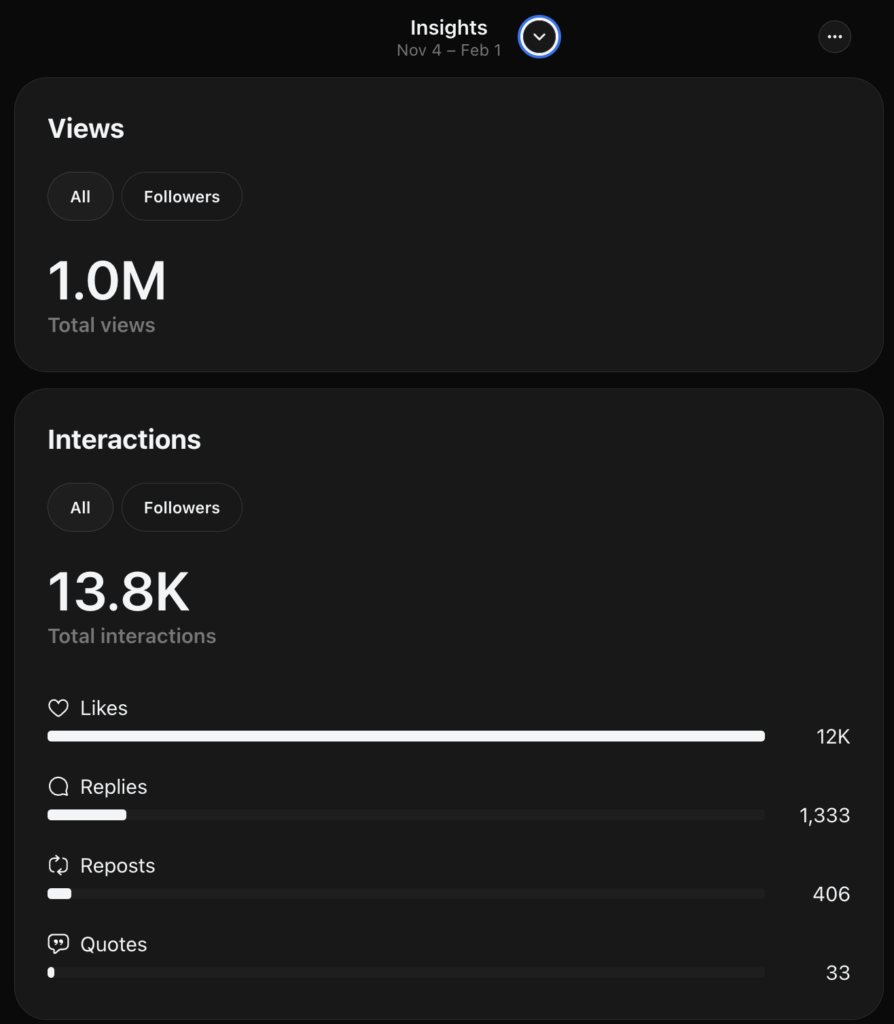
I have long known that Facebook is a problem, but it’s ability to remain a cultural necessity made it difficult to leave, despite everything. However, for all of the reasons covered here, I finally decided to leave my most engaged audiences.
There is no doubt that this move is not good for my business.
There is no Trolley.
The trolley problem is thought experiment designed with two assumptions:
- That the solution falls on an individual
- That you must choose between two bad options
But real life isn’t binary, and our problems aren’t solved through individual action, alone.
We have more options, there is no trolley.
But if we’re going to stick with this hypothetical situation:
Systems don’t change because of one person’s actions at a lever. It changes when the trolley operator slows down, when our communities watch the tracks, and when we enforce accountability and justice on those who tie people to tracks.
No single person can stop the trolley but if enough of us stand on the tracks and refuse to ride the trolley, we could stop these problems tomorrow.
So, what should we do?
Get out and walk. Refuse to accept the choices you’re given. Derail the trolley.
When you find yourself believing there are only two tracks, ask who built them and why they get to decide. Step outside the frame of the problem and eliminate the constraints by finding a third option.
Innovation is always born from (perceived) constraints. Every system that seems unshakable is actually presenting an opportunity. The market rewards those who see beyond the tracks and build something new.
You don’t have to pull the lever. We can dismantle the trolley.
I hope you enjoyed this post!
If this is your first time here or you haven’t yet become a subscriber… click here to get both Becoming Superhuman and The Infinite Impact Newsletter
I hope you enjoyed this post!
If you liked this post, then you will LOVE my newsletter (The Infinite Impact)
and my learning community (The Superhero Institute).

